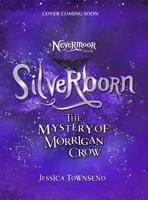Publisher's Synopsis
This historic book may have numerous typos and missing text. Purchasers can download a free scanned copy of the original book (without typos) from the publisher. Not indexed. Not illustrated. 1905 edition. Excerpt: ...for "chivalry." But was this seizure of escaping people, some of them women, " chivalry "? As a matter of fact it was meant as chivalry, that is, triumph over the North. The Southern " gentleman" brought back his fugitive as a trophy. He had incurred a personal danger and expense to humiliate the " Yankees," which he would not have incurred to recover a slave from another slave State. And the worst of it was that thousands of Southerners who held no slaves, or who were kind to them, were made accessory to those cruel invasions; and, on the other hand, every man and woman in the North was made accessory to the slave-hunt. Northern people might not recognize this situation as potential war, but I did. I had once been a Southern " fire-eater " myself. The real issue could not be compromised in the country, but in my church it was compromised. After Daniel Webster's body was mouldering in the grave his soul had marched on in some eloquent Unitarian preachers, --notably in Dr. Dewey, who had said that rather than divide the Union he would " send his mother into slavery, ten thousand times rather go himself." He was a personal friend of Webster, and possibly had in mind the "bloodshed and civil war," which frightened his idolized friend. He had been the favourite preacher in my Washington church, where the prevailing sentiment was that expressed in Webster's letter to Furness. Fletcher Webster and his wife, Mr. and Mrs. John L. Hayes, and George J. Abbot resided under the same roof and generally dined with each other. I was at times their guest, --Hayes and Abbot were members of my society, --and nothing could be more charming than these reunions. Slavery was never touched on. And so it was in other homes, where all felt themselves to be antislavery, but...























